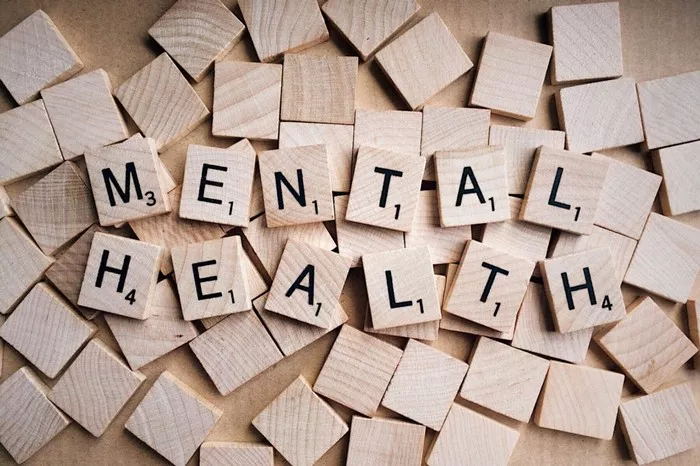Forgiveness is often viewed through the lens of moral and ethical considerations, but its significance extends far beyond these realms. In recent years, research has increasingly highlighted the profound impact that forgiveness can have on mental health. Forgiveness, both of others and oneself, plays a crucial role in emotional well-being, stress reduction, and overall psychological resilience. This article explores the multifaceted ways in which forgiveness contributes to mental health, the barriers to achieving it, and practical steps to cultivate a forgiving mindset.
Understanding Forgiveness
To fully appreciate the importance of forgiveness to mental health, it is essential to understand what forgiveness entails. Forgiveness is a conscious, deliberate decision to release feelings of resentment or vengeance toward someone who has harmed you, regardless of whether they deserve forgiveness. It does not mean condoning or excusing the wrongdoing, nor does it necessarily entail reconciliation with the offender. Instead, forgiveness is an internal process that allows the individual to move forward without the burden of bitterness and anger.
The Psychological Benefits of Forgiveness
Forgiveness has been shown to offer numerous psychological benefits. Here are some of the most significant ways in which it positively impacts mental health:
1. Reducing Stress and Anxiety
Holding onto grudges and harboring feelings of anger can lead to chronic stress and anxiety. These negative emotions activate the body’s stress response, releasing cortisol and other stress hormones that, over time, can contribute to physical and mental health problems. Forgiveness, by contrast, has been shown to reduce these stress responses. Studies have found that individuals who practice forgiveness have lower levels of cortisol and experience fewer symptoms of anxiety and depression.
2. Enhancing Emotional Well-Being
Forgiveness is closely linked to increased emotional well-being. When individuals forgive, they often experience a release of negative emotions and an increase in positive feelings, such as compassion and empathy. This shift in emotional state can lead to greater overall happiness and life satisfaction. Research has shown that people who are more forgiving tend to report higher levels of positive affect and lower levels of negative affect, contributing to a more balanced and contented emotional life.
3. Improving Relationships
Forgiveness plays a vital role in maintaining and improving personal relationships. Holding onto resentment can create barriers to communication and intimacy, leading to conflicts and misunderstandings. By practicing forgiveness, individuals can foster healthier, more resilient relationships. This not only enhances the quality of social connections but also provides emotional support, which is crucial for mental health. Strong, supportive relationships are known to buffer against stress and contribute to a sense of belonging and security.
4. Promoting Mental Resilience
Forgiveness is a powerful tool for building mental resilience. Life inevitably involves experiences of hurt and betrayal, but how we respond to these challenges can significantly impact our mental health. Individuals who are able to forgive are better equipped to cope with adversity, as they can move past negative experiences and focus on positive aspects of their lives. This resilience helps protect against the development of chronic mental health conditions, such as depression and anxiety.
5. Enhancing Self-Esteem and Self-Compassion
Forgiving oneself is an often-overlooked aspect of forgiveness that is crucial for mental health. Many people struggle with feelings of guilt and self-blame, which can erode self-esteem and contribute to mental health issues. Self-forgiveness involves acknowledging mistakes, learning from them, and releasing self-criticism. This process fosters self-compassion, which is associated with greater psychological well-being, including reduced anxiety and depression, and higher levels of life satisfaction.
Barriers to Forgiveness
Despite its numerous benefits, forgiveness can be challenging to achieve. Several barriers can hinder the process, including:
1. Deep-Seated Anger and Resentment
When someone has been deeply hurt, it can be difficult to let go of anger and resentment. These emotions can become ingrained, making it hard to imagine forgiving the offender. The intensity of these feelings can serve as a significant barrier to the forgiveness process.
2. Fear of Vulnerability
Forgiveness often requires vulnerability, as it involves acknowledging pain and opening oneself up to the possibility of being hurt again. This fear can prevent individuals from taking the necessary steps toward forgiveness, as they may worry about being perceived as weak or about the potential for future harm.
3. Misconceptions About Forgiveness
Many people hold misconceptions about what forgiveness entails, believing that it means condoning the behavior or reconciling with the offender. These misunderstandings can create resistance to forgiveness, as individuals may feel that forgiving would invalidate their experiences or expose them to further harm.
4. Lack of Empathy
Empathy plays a critical role in the forgiveness process. Understanding the perspective and motivations of the offender can facilitate forgiveness, but a lack of empathy can make this difficult. Individuals who struggle to empathize with others may find it harder to forgive.
5. Cultural and Social Influences
Cultural and social influences can also impact one’s ability to forgive. In some cultures, forgiveness may be seen as a sign of weakness, while in others, it may be highly valued. Social norms and expectations can either support or hinder the forgiveness process.
Cultivating a Forgiving Mindset
Given the challenges associated with forgiveness, it is important to explore practical strategies for cultivating a forgiving mindset. Here are some approaches that can help individuals develop the capacity to forgive:
1. Practice Self-Reflection
Self-reflection is a critical first step in the forgiveness process. Take time to understand the hurt you have experienced and acknowledge the emotions associated with it. Reflect on the impact that holding onto these feelings has on your mental health and well-being.
2. Develop Empathy
Cultivating empathy can facilitate forgiveness. Try to see the situation from the perspective of the person who hurt you. This does not mean excusing their behavior, but understanding their motivations and the context of their actions can help reduce feelings of anger and resentment.
3. Focus on the Present
Ruminating on past hurts can perpetuate negative emotions. Practice mindfulness and focus on the present moment. Mindfulness techniques, such as meditation and deep breathing exercises, can help you let go of the past and concentrate on the here and now.
4. Set Boundaries
Forgiveness does not mean allowing others to continue hurting you. Set healthy boundaries to protect yourself from further harm. Communicate your needs clearly and assertively, and take steps to ensure that your boundaries are respected.
5. Seek Support
Talking to a trusted friend, family member, or therapist can provide valuable support during the forgiveness process. Sharing your feelings with someone who understands and empathizes with your experience can help you process emotions and gain perspective.
6. Practice Self-Compassion
Forgiving yourself is an essential component of overall forgiveness. Acknowledge your mistakes and recognize that everyone makes errors. Treat yourself with the same kindness and understanding that you would offer to a friend in a similar situation.
7. Engage in Forgiveness Exercises
There are various exercises and techniques designed to promote forgiveness. These include writing a letter (which you may or may not send) to the person who hurt you, expressing your feelings and your intention to forgive. Visualization exercises, where you imagine releasing the negative emotions associated with the hurt, can also be effective.
8. Commit to Forgiveness
Forgiveness is a conscious choice that often requires a commitment to the process. Remind yourself of the benefits of forgiveness and make a deliberate decision to let go of resentment. This commitment can provide the motivation needed to continue working toward forgiveness, even when it is difficult.
The Role of Forgiveness in Therapeutic Settings
Forgiveness is increasingly recognized as a valuable component of various therapeutic approaches. Here are some ways in which forgiveness is integrated into mental health treatment:
1. Cognitive Behavioral Therapy (CBT)
CBT is a widely used therapeutic approach that focuses on identifying and changing negative thought patterns. Incorporating forgiveness into CBT can help clients address and reframe thoughts related to anger and resentment, promoting emotional healing and reducing symptoms of depression and anxiety.
2. Emotion-Focused Therapy (EFT)
EFT emphasizes the importance of processing and expressing emotions. Forgiveness can be a key aspect of this process, helping clients to release pent-up negative emotions and develop healthier emotional responses.
3. Mindfulness-Based Stress Reduction (MBSR)
MBSR combines mindfulness practices with stress reduction techniques. Forgiveness is often integrated into MBSR programs to help participants let go of past hurts and focus on the present moment, thereby reducing stress and improving mental well-being.
4. Group Therapy
Group therapy provides a supportive environment where individuals can share their experiences and work on forgiveness together. Group discussions and activities focused on forgiveness can foster empathy, understanding, and mutual support, enhancing the overall therapeutic experience.
Conclusion
Forgiveness is a powerful and transformative process that holds significant benefits for mental health. By reducing stress, enhancing emotional well-being, improving relationships, promoting mental resilience, and fostering self-esteem and self-compassion, forgiveness contributes to overall psychological health and quality of life. While there are barriers to achieving forgiveness, practical strategies such as self-reflection, empathy development, mindfulness, boundary setting, and seeking support can help individuals cultivate a forgiving mindset. As research and therapeutic practices continue to underscore the importance of forgiveness, it becomes increasingly clear that letting go of resentment and embracing forgiveness is essential for maintaining and enhancing mental health.
[inline_related_posts title=”You Might Be Interested In” title_align=”left” style=”list” number=”6″ align=”none” ids=”9566,9563,9554″ by=”categories” orderby=”rand” order=”DESC” hide_thumb=”no” thumb_right=”no” views=”no” date=”yes” grid_columns=”2″ post_type=”” tax=””]































